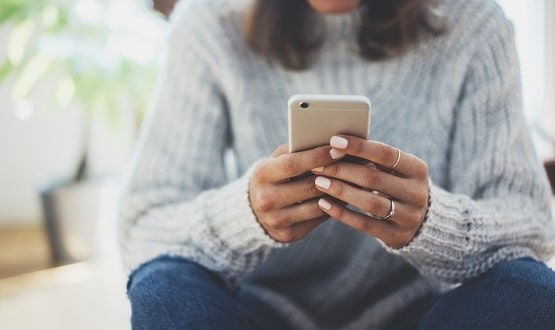Mobile health and apps news in brief

Our latest mobile health and apps round-up features a ‘brain training app’ developed by the University of Cambridge that could help people who suffer from obsessive compulsive disorder. Elsewhere, American research has suggested health apps could help those living in low-income households lose weight.
‘Brain training app’ could help OCD symptoms
A ‘brain training’ app could help people who suffer from obsessive compulsive disorder (OCD) manage their symptoms, a study has suggested.
Developed at the University of Cambridge, the tasks patients with watching videos of themselves washing their hands or touching ‘contaminated’ surfaces.
A study published in the journal Scientific Reports, suggests that just one week of training via the app can lead to significant improvements.
Professor Barbara Sahakian, who is one those behind the app, said: “This technology will allow people to gain help at any time within the environment where they live or work, rather than having to wait for appointments. The use of smartphone videos allows the treatment to be personalised to the individual.
“These results, while very exciting and encouraging, require further research, examining the use of these smartphone interventions in people with a diagnosis of OCD.”
ZoomDoc adds new features to GP app
On-demand healthcare company ZoomDoc has launched an updated version of its GP app.
The service allows people to request a GP to any given location.
The updated version now has a video consultation feature and can be used by Android devices.
It can also be incorporated as an employee benefit for businesses.
Founder and CEO, Kenny Livingstone, said: “The new ZoomDoc app is tailored to the varying needs of the patient. We are now the only service to offer comprehensive support whether by video, phone or face to face consultations.
“The app has also been tailored to support the needs businesses offering ZoomDoc as an employee benefit, making it easy for them to manage the healthcare of their staff via the app.”
Rise of online self-diagnosis causing stress for UK doctors, research suggests
A rise in online self-diagnosis is causing stress for UK doctors, research has suggested.
Medical resource library app, Indextra, carried out the research. It revealed that 83% of doctors are regularly seeing patients who have already self-diagnosed using online sources.
As a result, 79% of doctors feel under increasing pressure to be even more knowledgeable and a further 76% of doctors feeling pressured to diagnose patients quickly.
The research ties into the launch of Indextra’s library app, which includes over 500 resources from textbooks to drug-guides and clinical guidelines.
Magnus Olofsson, product manager at Indextra, said: “We are really excited to launch the Indextra app as a resource that will support doctors in their day-to-day practice.
“By making key medical resources available to practitioners in this app format, we can help them to access the validated, credible information that they need quickly and on the go.”
Health apps could help with weight loss
American research has suggested health apps could help those living in low-income households to lose weight.
For the research, patients at a primary care clinic were given a free app called Track so they could monitor behaviour changes, Digital Journal has reported.
Of those patients who used the Track app, 43% lost more than 5% of their body weight over the course of a year.
Additionally, their waist sizes decreased and their blood pressure fell.





1 Comments
“American research has suggested health apps could help those living in low-income households to lose weight.” Very interesting!
The study used a control group so the conclusion seems somewhat reliable.
Comments are closed.